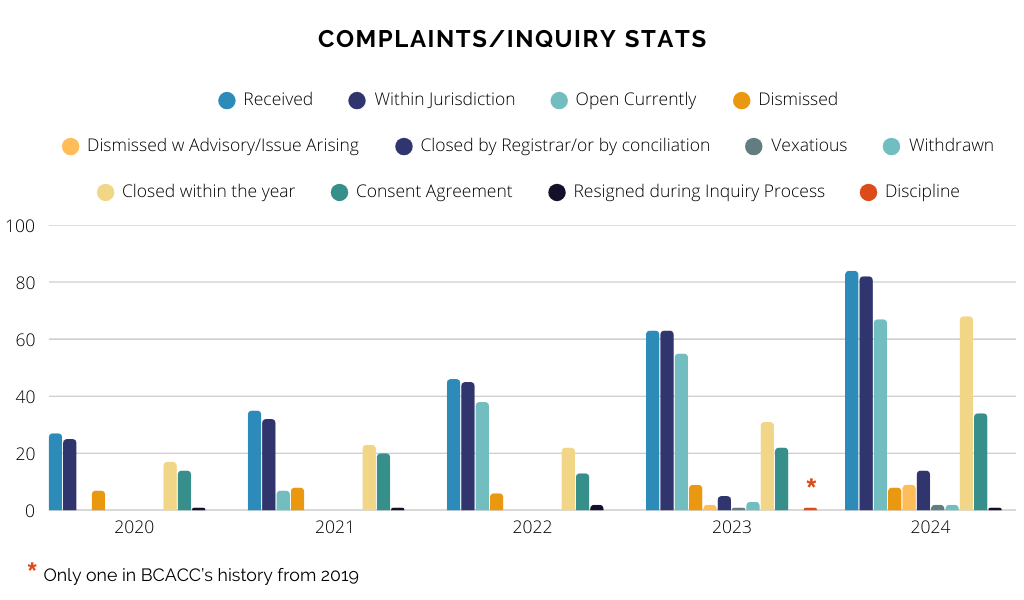REGULATION & PUBLIC PROTECTION
Our mandate
The BCACC continues to take proactive efforts to enhance its public protection measures.

The BCACC continued to fulfill its mandate to protect the public through the regulation of its registrants.
It did so by:
1. Determining registration requirements and granting authorized use of the Registered Clinical Counsellor (RCC) title;
2. Setting standards of practice;
3. determining requirements;
4. maintaining a register of RCCs that the public can search; and
5. Addressing complaints about its registrants.

Registration
In 2024, the BCACC granted the RCC title to 1176 new registrants resulting in an increase in membership of 14% year on year. The RCC designation continues to be recognized by more and more employers and institutions and is sought after by mental health professionals.

Complaints/inquiry
The number of new public complaints received continues to increase year-over-year due primarily to the increase in registrants each year.
Historically almost all complaints are resolved through consent agreements with only one resulting in disciplinary action in 2019, and just a few registrants resigning in the middle of an inquiry process. As a percentage of the overall number of registrants, the number of complaints remains in line, if not below, those of other BC Health regulatory colleges at or less than 1%.
This continues to the a testament to the professionalism shown by RCCs as they voluntarily agree to be regulated and be held to account by the BCACC under the Societies Act.
The largest number of complaints received fell into two categories:
1) High conflict family situations
(which the BCACC addressed previously with a new standard and more training);
2) Professional Boundaries
(triangulation & dual relationships, inappropriate self-disclosures and sexual misconduct/sexual abuse).
Regulatory Modernization
The BCACC continues to take proactive efforts to enhance its public protection measures and to prepare itself and its members for the new Health Professions and Occupations Act.
The BCACC consulted with and/or obtained support from multiple stakeholders including the BC Ministry of Health, Provincial and Federal Labour Mobility Ministry Branches and health profession regulatory colleges in BC as well as from across Canada to validate its regulatory building blocks.
Throughout 2024 the BCACC continued to build on and enhance its work through the Quality Assurance and Continuing Competency program and development of an agreed upon definition for “psychotherapy”.
This is in addition to work the BCACC already completed in the recent past, including:
the Entry to Practice Competency framework,
a publicly viewable member registry,
presentation at the Canadian Network of Agencies for Regulation (CNAR) on the topic of the regulation of Clinical Counselling,
and the release of new/updated standards and code of ethical conduct.
Approved Clinical Supervisor Program:
The Approved Clinical Supervisor (ACS) Program closed the legacy path in early 2024 with over 500 ACSs accredited. Since March 2024, the ACS program was refined to offer a clear path for eligible candidates to become clinical supervisors and provide training resources and support to help ACS designation holders build the requisite skills needed to foster and develop future clinical counsellors/psychotherapists. This program has contributed to eliminating the risk of clinical counsellors/psychotherapists working in silos and offering a layer of public protection through professional oversight.
